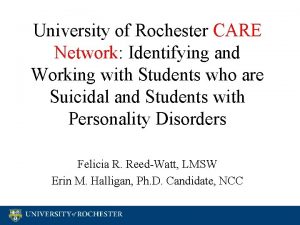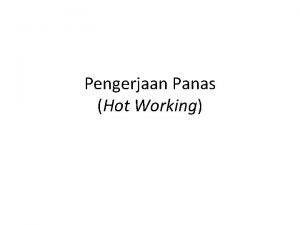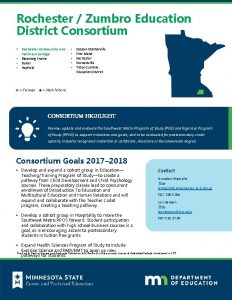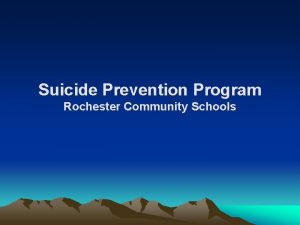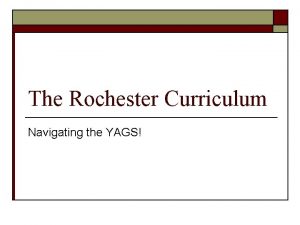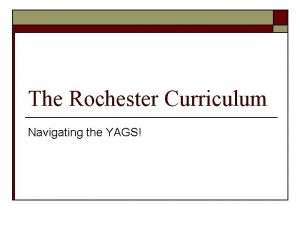University of Rochester CARE Network Identifying and Working









- Slides: 9

University of Rochester CARE Network: Identifying and Working with Students who are Suicidal and Students with Personality Disorders Felicia R. Reed-Watt, LMSW Erin M. Halligan, Ph. D. Candidate, NCC

CARE Network Overview § Student Support Network has been around for 20+ years. Our current CARE Network was established in 2010. § 48% increase in CARE reports over the last two years (427 to 927 reports). In 2012 -2013 academic year: § Faculty: 154 § Staff: 664 § Student: 83 Self: 5 Parent: 5 Other: 16

Comparison to other BITs Similarities Differences § Coordinate response with other offices § Determines the best mechanism for support § Engage with students identified as needing intervention § Multidisciplinary § Proactive § Record Keeping § § § Anyone can submit CARE team Student Support Network CARE APP Medical Checks Well Publicized

Our Case Management Component § Weekly CARE team meetings § Case Conferences § Monitor behavioral expectations for students that have been identified with mental health or substance abuse issues § Community referrals for all matriculated students and students on medical leave

How Are We Doing? § We survey students identified through CARE as well as CARE reporters every semester. § Results suggest that our system is helpful and effective for most students. § We review negative feedback and try to find ways of making our system more user friendly.

Are we Effectively Serving all Students? § Trends we are seeing with students § Our typical response § Are our students who are chronically suicidal or those with personality disorders being served by this system? § Although the survey results are anonymous, case-specific feedback suggests that our students who are chronically suicidal and those students with axis II diagnoses are less satisfied with CARE.

Common Characteristics Students who are suicidal Students with personality disorders § Verbalizing suicidal ideation and/or self harming behaviors § Attempts/self harming § Suicidal gestures that may affect the community § Substance abuse § Verbalizing self harming behaviors and/or suicidal ideation § Attempts § Suicidal gestures that may affect the community § Substance abuse § Defiance § Anger § Refusal for therapy § Splitting

Altering Our Approach § New BC procedure- giving students a choice § Responses if they don’t follow through § Continue to listen to student feedback and see if changes to our procedure need to be made

Questions? § Felicia Reed-Watt, Staff Therapist and CARE manager freed 2@ur. rochester. edu § Erin M. Halligan, Associate Director for Student Support Services erin. halligan@rochester. edu
 Felicia reed watt
Felicia reed watt Identifying and non identifying adjective clauses
Identifying and non identifying adjective clauses Non identifying adjective clauses examples
Non identifying adjective clauses examples Identifying and non identifying adjective clauses
Identifying and non identifying adjective clauses Lattimore hall
Lattimore hall Hot working and cold working difference
Hot working and cold working difference Hot principle
Hot principle Differentiate between hot working and cold working
Differentiate between hot working and cold working Proses pembentukan logam
Proses pembentukan logam Primary care secondary care tertiary care
Primary care secondary care tertiary care
